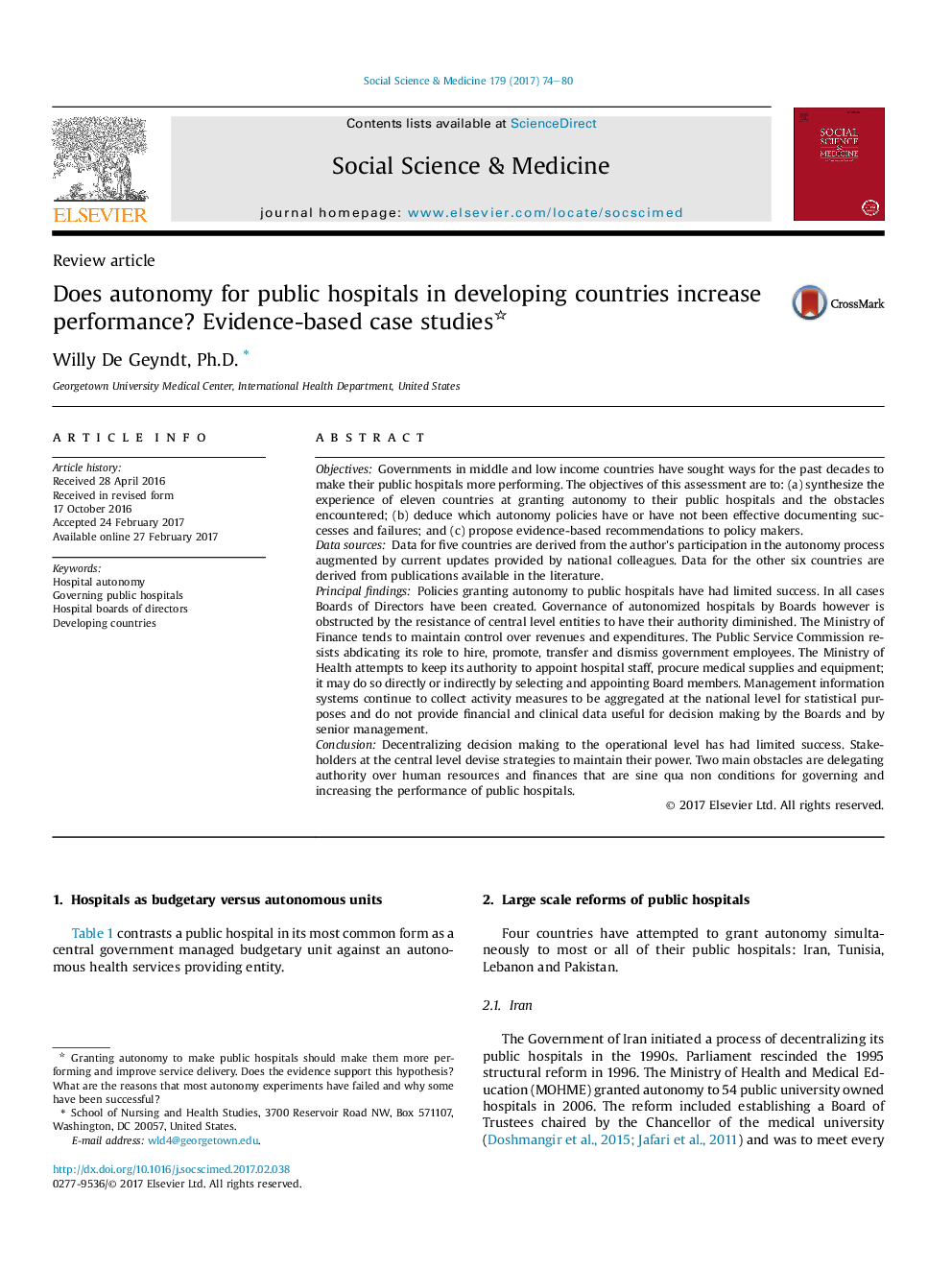| کد مقاله | کد نشریه | سال انتشار | مقاله انگلیسی | نسخه تمام متن |
|---|---|---|---|---|
| 5046617 | 1475990 | 2017 | 7 صفحه PDF | دانلود رایگان |
- Policies granting autonomy to public hospitals have had limited success.
- Two main obstacles are delegating authority over human resources and finances.
- Central levels obstruct the governance function of the Boards of Directors.
- Information systems do not provide hospital performance data.
ObjectivesGovernments in middle and low income countries have sought ways for the past decades to make their public hospitals more performing. The objectives of this assessment are to: (a) synthesize the experience of eleven countries at granting autonomy to their public hospitals and the obstacles encountered; (b) deduce which autonomy policies have or have not been effective documenting successes and failures; and (c) propose evidence-based recommendations to policy makers.Data sourcesData for five countries are derived from the author's participation in the autonomy process augmented by current updates provided by national colleagues. Data for the other six countries are derived from publications available in the literature.Principal findingsPolicies granting autonomy to public hospitals have had limited success. In all cases Boards of Directors have been created. Governance of autonomized hospitals by Boards however is obstructed by the resistance of central level entities to have their authority diminished. The Ministry of Finance tends to maintain control over revenues and expenditures. The Public Service Commission resists abdicating its role to hire, promote, transfer and dismiss government employees. The Ministry of Health attempts to keep its authority to appoint hospital staff, procure medical supplies and equipment; it may do so directly or indirectly by selecting and appointing Board members. Management information systems continue to collect activity measures to be aggregated at the national level for statistical purposes and do not provide financial and clinical data useful for decision making by the Boards and by senior management.ConclusionDecentralizing decision making to the operational level has had limited success. Stakeholders at the central level devise strategies to maintain their power. Two main obstacles are delegating authority over human resources and finances that are sine qua non conditions for governing and increasing the performance of public hospitals.
Journal: Social Science & Medicine - Volume 179, April 2017, Pages 74-80
